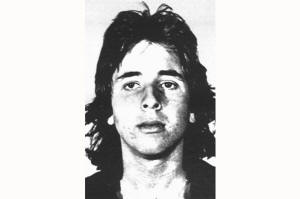|
Records from the U.S. Bureau of Prisons show Fabio Ochoa Vásquez
was released Tuesday after completing 25 years of a 30-year
prison sentence.
Ochoa, 67, and his older brothers amassed a fortune when cocaine
started flooding the U.S. in the late 1970s and early 1980s,
according to U.S. authorities, to the point that in 1987 they
were included in the Forbes Magazine's list of billionaires.
Living in Miami, Ochoa ran a distribution center for the cocaine
cartel once headed by Pablo Escobar.
Although somewhat faded from memory as the center of the drug
trade shifted from Colombia to Mexico, he resurfaced in the hit
Netflix series “Narcos” true to form as the youngest son of an
elite Medellin family into ranching and horse breeding that cut
a sharp contrast with Escobar, who came from more humble roots.
Ochoa was first indicted in the U.S. for his alleged role in the
1986 killing of Drug Enforcement Administration informant Barry
Seal — whose life was popularized in the 2017 film “American
Made” starring Tom Cruise.
He was initially arrested in 1990 in Colombia under a government
program promising drug kingpins would not be extradited to the
U.S. At the time, he was on the U.S. list of the “Dozen Most
Wanted” Colombia drug lords.
Ochoa was arrested again and extradited to the U.S. in 2001 in
response to an indictment in Miami naming him and more than 40
people as part of a drug smuggling conspiracy. Of those, Ochoa
was the only one who opted to go to trial, resulting in his
conviction and the 30-year sentence. The other defendants got
much lighter prison terms because most of them cooperated with
the government.
Richard Gregorie, a retired assistant U.S. attorney who was on
the prosecution team that convicted Ochoa, said authorities were
never able to seize all of the Ochoa family's illicit drug
proceeds and he expects that Ochoa will have a welcome return
home.
“He won't be retiring a poor man, that's for sure,” Gregorie
told The Associated Press.
Richard Klugh, a Miami-based attorney for Ochoa, declined to
comment.
But in years of litigation, he argued unsuccessfully that his
client deserved to be released early because his sentence far
exceeded what was appropriate for the amount of seized cocaine
that authorities could attribute to Ochoa.
All contents © copyright 2024 Associated Press. All rights
reserved |
|




